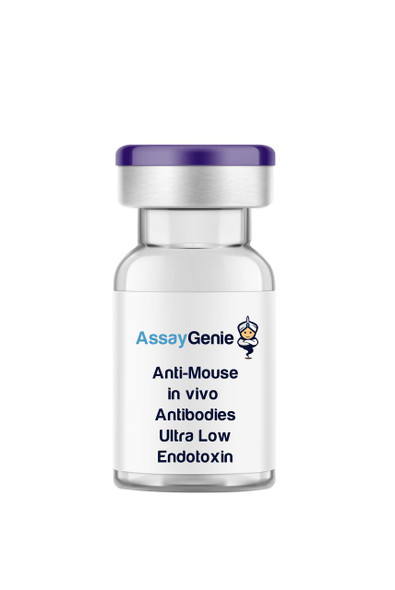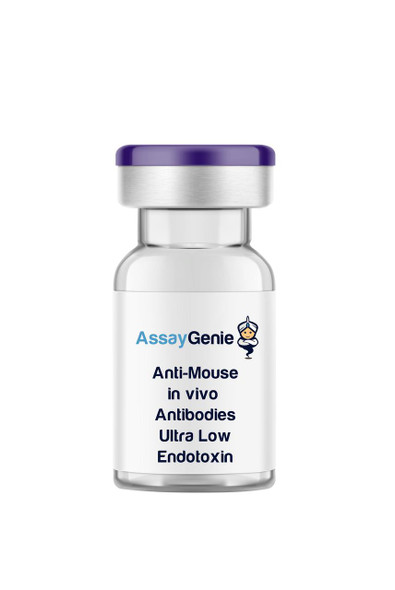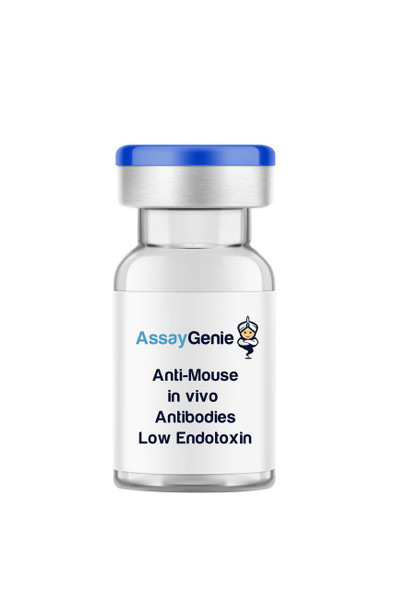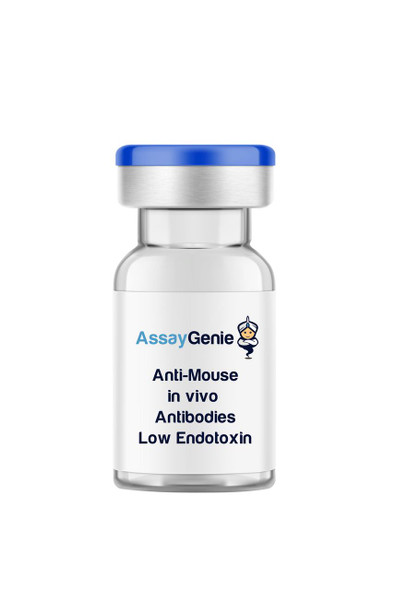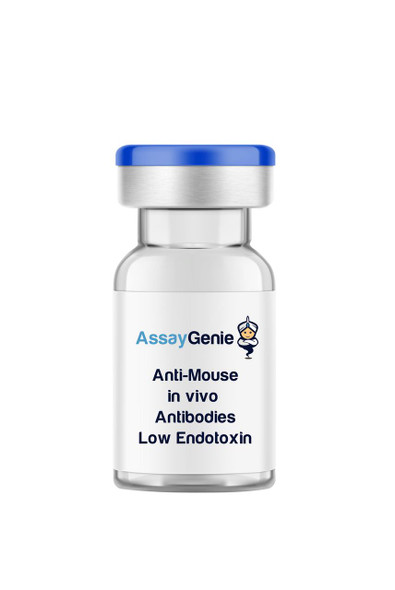Anti-Mouse γ/δ (TCR) In Vivo Antibody - Low Endotoxin
- SKU:
- IVMB0035
- Product Type:
- In Vivo Monoclonal Antibody
- Clone:
- UC7-13D5
- Protein:
- Gamma/Delta T-Cell Receptor
- Isotype:
- Armenian Hamster IgG
- Reactivity:
- Mouse
- Synonyms:
- TCR
- Research Area:
- T Cell Depletion
- Endotoxin Level:
- Low Endotoxin
- Host Species:
- Armenian Hamster
- Applications:
- Depletion
- FC
- IP
Frequently bought together:
Description
system_update_altTechnical Datasheet
| Product Name: | Anti-Mouse γ/δ (TCR) In Vivo Antibody - Low Endotoxin |
| Product Code: | IVMB0035 |
| Size: | 1mg, 5mg, 25mg, 50mg, 100mg |
| Clone: | UC7-13D5 |
| Protein: | Gamma/Delta T-Cell Receptor |
| Product Type: | Monoclonal Antibody |
| Synonyms: | TCR |
| Isotype: | Armenian Hamster IgG |
| Reactivity: | Mouse |
| Immunogen: | Unknown |
| Applications: | Depletion, FC, IP |
| Formulation: | This monoclonal antibody is aseptically packaged and formulated in 0.01 M phosphate buffered saline (150 mM NaCl) PBS pH 7.2 - 7.4 with no carrier protein, potassium, calcium or preservatives added. |
| Endotoxin Level: | < 1.0 EU/mg as determined by the LAL method |
| Purity: | ≥95% monomer by analytical SEC >95% by SDS Page |
| Preparation: | Functional grade preclinical antibodies are manufactured in an animal free facility using only In vitro protein free cell culture techniques and are purified by a multi-step process including the use of protein A or G to assure extremely low levels of endotoxins, leachable protein A or aggregates. |
| Storage and Handling: | Functional grade preclinical antibodies may be stored sterile as received at 2-8°C for up to one month. For longer term storage, aseptically aliquot in working volumes without diluting and store at -80°C. Avoid Repeated Freeze Thaw Cycles. |
| Applications: | Depletion, FC, IP |
| Reactivity: | Mouse |
| Host Species: | Armenian Hamster |
| Specificity: | The anti-mouse Gamma/Delta T-cell receptor antibody reacts with all mouse TCR Gamma/Delta heterodimers. |
| Antigen Distribution: | γδ TCR expression is observed on a subset of cells in the thymus, intestinal epithelium, skin, liver, peripheral lymphoid tissues, and peritoneum. The γδ TCR is involved in the antigen recognition of some bacterial or tumor-associated antigens presented by MHC class I. |
| Immunogen: | Unknown |
| Concentration: | ≥ 5.0 mg/ml |
| Endotoxin Level: | < 1.0 EU/mg as determined by the LAL method |
| Purity: | ≥95% monomer by analytical SEC >95% by SDS Page |
| Formulation: | This monoclonal antibody is aseptically packaged and formulated in 0.01 M phosphate buffered saline (150 mM NaCl) PBS pH 7.2 - 7.4 with no carrier protein, potassium, calcium or preservatives added. |
| Preparation: | Functional grade preclinical antibodies are manufactured in an animal free facility using only In vitro protein free cell culture techniques and are purified by a multi-step process including the use of protein A or G to assure extremely low levels of endotoxins, leachable protein A or aggregates. |
| Storage and Handling: | Functional grade preclinical antibodies may be stored sterile as received at 2-8°C for up to one month. For longer term storage, aseptically aliquot in working volumes without diluting and store at -80°C. Avoid Repeated Freeze Thaw Cycles. |
The T cell receptor or TCR is a molecule found on the surface of T lymphocytes that is responsible for recognizing antigens bound to major histocompatibility complex (MHC) molecules. It is a heterodimer consisting of an α and β chain in 95% of T cells, while 5% of T cells have TCRs consisting of γ and δ chains. Engagement of the TCR with antigen and MHC results in activation of its T lymphocyte through a series of biochemical events mediated by associated enzymes, co-receptors and specialized accessory molecules.
| Technical Datasheet: | View |
| Protein: | Gamma/Delta T-Cell Receptor |
| Function: | Antigen recognition |
| Ligand/Receptor: | Some bacterial or tumor antigens bound MHC class I |
| Research Area: | Adaptive Immunity, Immunology |

| Armenian Hamster IgG Isotype Control | |
|---|---|
| Clone | PIP |
| Isotype | Armenian Hamster IgG |
| Endotoxin Level | Low Endotoxin |


